“No One Is Coming to Save Us”

Eight Florida activists on the experience of organizing under Governor Ron DeSantis’s far-right onslaught.
Illustrations by Nadyia Duff
What came first? The desire to be in Miami—the strange, sinking city; an outpost of empire near the Caribbean—or the desire to join those trying to change Miami, to bend its sparkling capital, even if just slightly, toward the needs of the US-meets-Global South people who work, live, and linger here? What, I thought, could be more important for a leftist than to go and build the movement in the place we are most despised; where the distinction between the fascist elite and the rest of us is so stark, so obvious, without the hand-wringing and pretense of wealthy liberals anywhere in sight? So I drove down to Florida from North Carolina, U-Haul in tow, hoping my years of working on campaigns like the Fight for $15 would guide me to movements I could contribute to here. It was the fall of 2017, exactly one year before Ronald Dion DeSantis would be elected governor by one of the slimmest margins in recent US history.
I joined the election night party at a bar called Gramps, together with a number of other organizers. We had all knocked thousands of doors for DeSantis’s opponent Andrew Gillum, the former mayor of Tallahassee and the first Black nominee for governor in Florida’s history. But as the night wore on, it became clear that DeSantis—the aggressively racist, anti–gun control Republican whose campaign ads showed him teaching his toddler about building a border wall—was going to eke out a win; the final margin was 0.4%, around 32,000 votes out of more than 8 million cast. The mood at Gramps was somber. For some of the younger activists, this had been their first electoral campaign; many held each other and cried.
But even in our grief, we couldn’t have known just how many calculated, aggressive, and innovative right-wing attacks were on the horizon. Today, the prospect of autocratic governmental overreach during a second Trump term rightly inspires alarm; Florida under DeSantis is the workshop where this kind of total power has been honed. Under the right-wing legislative majority animated by the MAGA bump, just since 2018, Florida has: passed legislation to decertify public sector unions that don’t meet arbitrary membership thresholds, causing 42,000 union members to lose their representation; mandated that businesses with 25 or more employees use a software called E-Verify, which is designed to discriminate against undocumented workers; required healthcare providers working at hospitals that receive Medicaid funding to inquire about a patient’s immigration status and then pass that information to the state; banned abortions after six weeks of pregnancy in a state that was previously the fourth-largest abortion provider in the country; banned any funding for programs that support diversity, equity, and inclusion at public colleges and universities; empowered a tiny minority of conservative parents to object to certain books being available in classrooms; dramatically expanded charter schools while siphoning funding from public education; banned any local regulation to protect workers against extreme heat; passed a law to delete the words “climate change” from state statutes; restricted gender-affirming healthcare; criminalized drag shows; banned trans girls from school sports; and expanded the collaboration between local law enforcement and immigration authorities.
This rightward shift is felt everywhere in the dispatches that follow, which features an electoral organizer, an abolitionist doctor, a farmworker leader, a public sector unionist, a trans activist, a climate advocate, a reproductive justice campaigner, and a socialist city council member. These progressive leaders have been watching the ground shift under their feet. “[It] has felt like a never-ending battle,” said Brittany Frizzelle, the reproductive justice organizer, who works with the nonprofit Power U. “You’re always fighting the latest bad bill and the 15 others that came before it.”
Despite such assaults, collectives of people dedicated to the protection and dignity of their communities have not succumbed in Florida. Instead, activists are responding to the hostile political terrain with both new and established strategies. For instance, one of the key challenges of organizing under a right-wing legislative majority is “preemption,” the legal doctrine under which a higher level of government can restrict, limit, or withdraw the authority of a lower level of government to act on a particular issue. Most recently, the state legislature has used preemption to kill the ability of cities and counties to mandate protections for workers in extreme heat, blocked protections for tenants, and undermined local living wage provisions. Some advocates are responding to this preemption by recommitting to grassroots pathways to policy change. Specifically, they are using Florida’s arduous process for amending the state constitution, under which proposals can be placed on the statewide ballot based on verified petitions from at least half of the state’s congressional districts, and totaling at least 8% of the number of votes cast in the last presidential election. If these proposals then go on to win at least 60% of the vote, they can be added to the Florida constitution. Organizers turned to this strategy for a 2018 initiative to re-enfranchise voters with prior felony convictions who had been previously stripped of the right to vote for life, and for a 2020 bid to raise Florida’s minimum wage. And, an initiative to enshrine the right to abortion in Florida’s constitution is going to be on the ballot this November.
Organizers are also building power outside of the legislative arena. As Caitlin MacLaren, a nurse and union leader with SEIU 1991, underscores, the hostile attacks on organized labor in Florida have forced unions like hers to “do some really deep organizing. You’ve got to go back to basics and engage every member about the importance of the union, which has the potential to strengthen unions as well.” As many in the labor tradition remind us, power comes from workers acting together to transform their conditions—whether or not the boss, the governor, or the state legislature supports their unity—and Florida organizers, both within and outside of formal unions, have long lived by this maxim. Geraldo Reyes Chaves, a former farmworker and a longtime leader of the Coalition of Immokalee Workers, explains that farmworkers have undertaken collective action even though they are technically barred from unionizing. “The Coalition has never sought change through legislation or policy,” he stresses. Instead, they have leveraged their distinct worker-led model to directly pressure corporations, resulting in the transformation of supply chains across the Florida agricultural industry and the adoption of their model around the world.
Still other organizers are acting through direct service provision, recognizing the need to take matters into their own hands when the dehumanization of their communities translates into the organized abandonment of people’s most basic needs. This is why Armen Henderson—a physician organizing with the youth-led movement organization Dream Defenders and the founder of the street medicine group Dade County Street Response—explains his practice of creating free medical care, trauma response, and emergency social services for victims of gun violence and the unhoused as a form of abolitionist praxis. Similarly, Ashley Mayfaire, founder of the trans mutual aid group TransSOCIAL, notes that their organization is focusing on “setting up sustainable networks for trans care outside of government systems.” For these organizers, the way to respond to the conservative crusade against them—which makes funding and implementing services more difficult—is to provide for their communities what the extreme right seeks to deny. As Mayfaire puts it, “we want to keep each other safe, no matter who is in power, no matter which laws come down.”
Being an organizer in Florida is a constant, often demoralizing battle to minimize suffering. There are days when I wonder if I would have been better off struggling somewhere else. But then I remind myself that Florida is not singular. If anything, organizing here has led me to believe that the fascist right that uses the state as a laboratory and a home base will not be satisfied until their agenda is imposed at a national and global level. Learning the resilience to gather and regather in the face of failures and setbacks is thus as necessary as it is painful. After all, utopia was never the goal or the possible outcome; only struggle is guaranteed. And if there is a kind of utopia to be found here, it won’t be in the sanitized, mirrored opulence of the high rises that crowd the Miami skyline—it will be in the upswells, and the attempts, from below.
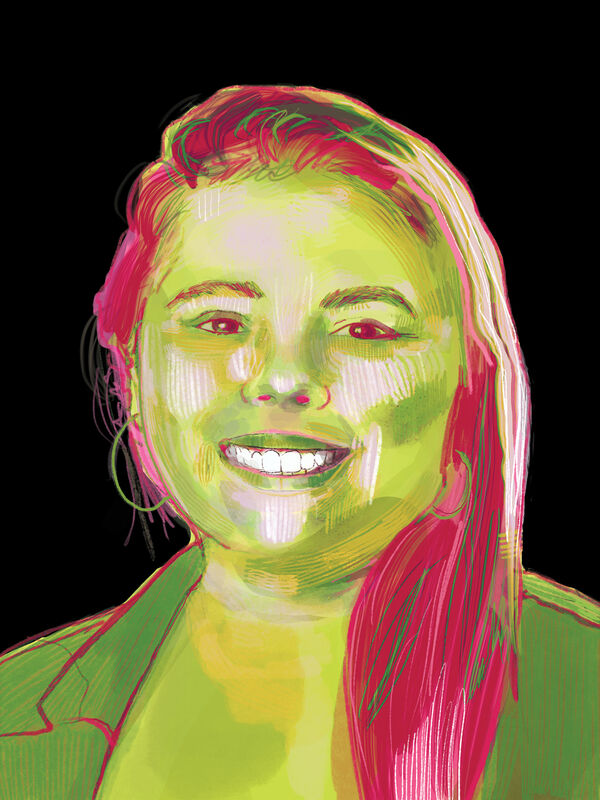
Ivanna Gonzalez
Florida Rising
I was born in Caracas, Venezuela, and my family moved to Miami when I was five years old. I grew up in Miami-Dade—specifically, the neighborhood of Doral, an area that is so Venezuelan that for most of my childhood I thought that Venezuelans were the majority in this city. I started organizing in college at University of North Carolina Chapel Hill, around the time of the Occupy movement and the killing of Trayvon Martin. For ten years in North Carolina, I did campus labor organizing and also worked to hold sheriffs accountable for collaborating with ICE and for police brutality, primarily against Black folks. But then Covid happened, and my dad got really sick, so I decided to come home. I was also watching the right-wingers make serious, really culturally competent inroads into the community that I grew up in, exploiting Venezuelans’ trauma. I remember hearing about Marco Rubio making a stop at this very popular arepa spot called Arepazo. And I remember the day that Mike Pence decided that he was going to come speak at the church that I grew up going to. It reminded me that I had a lot of work to do with my own people in my home state.
I spend a lot of time thinking about how to respond to attacks on our work on the basis that it’s “socialist,” which is a scare tactic used by the right. This has really been the question of my life. And my theory of change on this stuff is that you have to lead with issues. As campaigns director at [the progressive advocacy group] Florida Rising, I don’t work backward from elections or parties or ideology, I work backward from the things that are directly impacting people’s lives.
“I don’t work backward from elections or parties or ideology, I work backward from the things that are directly impacting people’s lives.”
A really excellent example of how that’s playing out comes from Doral, where I grew up. There was an incinerator there that has been around since the ’80s, which burns trash in order to extract energy, and therefore is a supposedly green and sustainable way of managing trash. But that’s nonsense: Incinerators have been shown to emit particulate matter, which has all kinds of health implications for the communities immediately surrounding them. I grew up smelling that stink and knew it couldn’t be good, but it was also incredibly normalized. At Florida Rising, we’ve been able to work on a campaign to end incineration in Miami-Dade. Last year, there was a fire at that Doral incinerator that lasted for over two weeks. And what was really powerful is that we got to go knock on people’s doors and say something like, “Do you smell that? Are you aware of how toxic it is? Will you join us in this fight to get it shut down?” And through this campaign, we’re building relationships, and in political education about the systems that put that incinerator in a primarily Latino neighborhood for so many decades; about the elected officials who are consistently undermining efforts to regulate the energy industry and the incinerator industry? Little by little, this entry point is actually helping us to build movements regardless of political party or ideology.
I returned to Florida in 2021, at the front end of a really disappointing trend where national political circles started to view Florida no longer as a swing state but as a red state. And my colleagues and I would contend that Florida isn’t a red state. It’s actually a state that suffers from voter suppression, from a specific strategy to intentionally introduce wedge issues like trans youth in sports and abortion access, for example, to distract from the things that are directly impacting all of us, like the fact that so few of us can afford to live in the places where we grew up, that our utility bills are through the roof while the utility companies’ profits skyrocket.
The good news is that even with significant disinvestment in progressive organizing infrastructure, we’re making headway. A progressive coalition helped elect Donna Deegan as a Democratic mayor in Jacksonville. We also collected over a million signatures in record time to put a constitutional amendment on the ballot that would end government interference in abortion. And we’re really excited because, despite political divides, Floridians consistently vote “yes” on progressive ballot measures when a specific issue is before them. We proved that in 2010 with the fair districts amendments, in 2018 with voting rights restoration, in 2020 with minimum wage. We almost achieved this with rent stabilization, too. In 2022, despite being significantly outspent by the Realtors Association, the Florida Apartment Association, and others, our coalition in Orange County passed one of the first rent stabilization ballot initiatives in the history of the state, with 59% of the vote. So that was a significant victory. Of course, then the DeSantis Republican legislature went ahead and preempted the voices of Orange County voters and said that rent stabilization was not allowed at the local level.
Starting in the 2023 legislative session, the amount of preemption coming from the state legislature was astounding. And that has had a really chilling effect on our ability to campaign for and win progressive local policy. I’m still hopeful, though—I will say that. It feels like we’ve got a really sophisticated movement in Florida with highly skilled strategists, implementers, and visionaries who can see that another world is possible. A common refrain in our circles is that no one is coming to save us. We’re going to have to save ourselves.
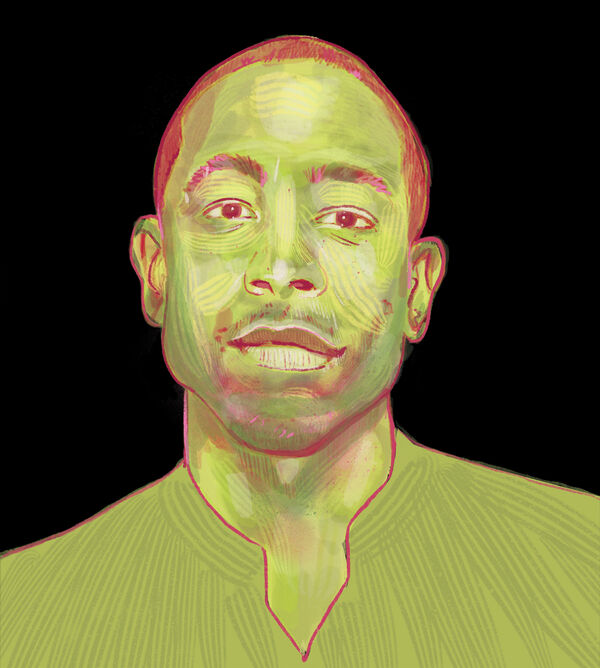
I’m originally from Philadelphia and ended up in Florida during my medical residency. Before coming here, I was looking forward to enjoying the beaches, the weather, things like that. But after I arrived, I realized that if I am going to live here, I really want to ground myself in working-class politics in the area. So as soon as I touched down ten years ago, I started organizing with [the racial justice organization] Dream Defenders.
In medical school, I learned that social and economic factors really decide which people live and which people die; in Miami this disparity is so stark that you can literally cross a street and the life expectancy goes down by 15 years. But medical professionals don’t really put this learning into action. So as I was grounding myself in Florida, I was thinking: What is the role of a physician as an organizer? That is how Dream Defenders began offering our trauma recovery center, which seeks to provide free medical care, therapy, and social services to people affected by gun violence. We also offered a mobile mental health crisis team, so that instead of calling the police—with whom you are 16 times more likely to be shot and killed when having a mental health crisis—people can call our number and get access to a therapist, an interventionist, and a medical worker instead. At the same time this trauma recovery center was getting off the ground, I was growing an organization called Dade County Street Response, which focuses on retraining medical professionals in advocacy and programming for poor Black and brown communities, including people who are unhoused.
There is a sentiment that I’ve noticed through my work over the last couple years that if you’re offering services that make it easier for marginalized people to survive, you are “encouraging laziness.” For example, during Covid-19, we set up a full-service shower site for those experiencing unsheltered homelessness because these individuals were having to walk miles to go to the bathroom, to shower, to wash their hands during a pandemic. But once we started offering this service where about 300 people a day were also getting clothes and Covid testing, we were reprimanded by city and county governments, community members, and even county-funded anti-homelessness organizations like the Miami-Dade County Homeless Trust, because they felt that we were encouraging living in the streets. Meanwhile, the Trust’s chairman, Ron Book, who runs one of the most powerful lobbying firms in the state and probably the country, was lobbying for the Florida Apartment Association, which is actively fighting against rent control—a measure that could actually materially lessen homelessness. Book is also the lobbyist for the GEO Group, which is the largest prison corporation in America, and which benefits from making homelessness a crime.
Indeed, in Florida, the criminalization of homelessness is proceeding apace. By 2019, a federal court had already overturned Miami policies protecting the rights of the unhoused to sleep outside, and this March, DeSantis expanded this by prohibiting municipalities from allowing public camping. This means that we’ve had massive encampment sweeps in which individuals are told, “you either move, or you go to jail.” The city comes out with water cannons to spray where they had their tents. Now these folks are just sitting at bus stops, spread out in other places along the highway, or left to congregate in abandoned houses and other unsafe places, and we can’t get them the services that they need.
“The question is, what is the state of Florida? And the answer on offer is it’s a playground for people who are well-to-do, not an equitable state where working people can live.”
If the rent is high, you don’t have enough Section 8 housing, you don’t have enough shelter space, and yet you’re also criminalizing homelessness and people can’t pitch a tent, what are they supposed to do, float in the sky? The messaging is obvious: “Just leave.” And so we’re seeing a mass exodus of working-class people from Florida to states to the north, and we’re seeing people with money come here instead: Apple’s moving here, Jeff Bezos just moved here, the Chicago-based hedge fund Citadel is transplanting all their top employees here. The question being posed is, what is the state of Florida? And the answer being offered is that it is the playground for people who are well-to-do, not an equitable state where working people can live.
Of course, when we tell the state government, “you fucked up,” these people don’t like it. They really don’t like being held accountable. They take it personally, and they say, “well, we’re not going to fund you then.” And in Florida, since the state really dictates what local governments do, this creates a big problem. We’re still trying to figure out the politics of it. One alternative model we’re using is to focus on federal funding instead. We start up a small-scale program, make it look good, and then shame the federal government into funding it—and that has worked very well.
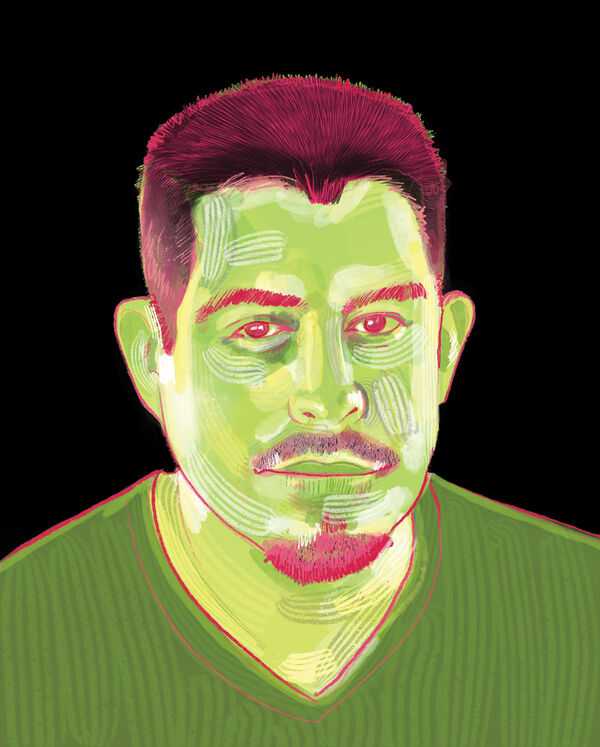
Gerardo Reyes Chavez
Coalition of Immokalee Workers
I came from Mexico to central Florida in 1999. I was harvesting oranges with a crew, but the pay was very little. We decided to move to Immokalee, in the southwestern part of the state because recruiters had been telling us about how great the working conditions and wages were there. But my welcome to Immokalee was harsh. After two weeks of work—waking up at 3:00 am to harvest tomatoes—my crew and I were fired on the spot because we had asked the boss for $20 for food and supplies. We were kicked out of the mobile home we were staying in. We had not been paid, we had no job, and no place to stay.
We didn’t know anybody, but we eventually found another job harvesting oranges. There, I met someone with an indirect connection to the United States v. Cuello case [a 1999 lawsuit in which workers were held in trailers west of town and forced to work off a large debt under violent threat]. I met these workers after the case wrapped up, and they became my roommates and my friends. They talked with me about how the [farmworker rights group] Coalition of Immokalee Workers helped them bring their employer to justice, and invited me to come to meetings. That’s how I first got involved.
Because farmworkers are excluded from the National Labor Relations Act, workers in Immokalee couldn’t form a union, and because we don’t have a lobby like the American Farm Bureau, the Coalition has never sought change through legislation or policy. Instead, we focus on moving the market. Specifically, around the time I got involved, we were realizing that big food brands—including fast food chains and supermarkets—were using their purchasing power to negotiate the lowest possible food prices with growers, who in turn were slashing production costs to try to protect their shrinking margins. But growers don’t cut costs by telling Monsanto, “we’re going to pay you the same for fertilizers as we did 20 or 30 years ago”; instead, the workforce became the place to squeeze. We realized that this was why farmworkers’ per-bucket pay had stagnated at 40 to 45 cents for decades.
Our first ever national campaign, a boycott of Taco Bell, was created with this theory of change in mind, and with the rallying cry “Taco Bell makes farmworkers poor.” When the Coalition announced the boycott in 2001, I was still working in the fields, but I went to every community meeting, retreat, and action. I would also go door to door to invite people to come and participate in those meetings. Over the next four years, we educated ourselves and then consumers around the country about how Taco Bell’s power in the market was fueling the poverty and abuse that we faced in the fields. In 2005, I was part of a delegation of 100 farmworkers who visited universities, union halls, and churches in 17 cities on the way from Immokalee to Louisville, Kentucky, the headquarters of Taco Bell’s parent company, Yum Brands, one of the largest restaurant companies in the world. And when we arrived, Taco Bell and its parent company were willing to talk. They agreed to only buy from farms that abided by our worker-drafted code of conduct, to pay a penny per pound that would go directly to workers in the form of a bonus on their regular paychecks, and implement a zero tolerance policy for modern-day slavery. This was the basis of the Fair Food Program, which we launched in Florida in 2011 and, in collaboration with participating growers, expanded across almost the entire tomato industry of the state. Since then, we have grown to cover more crops and regions. As a result, tens of thousands of farmworkers across ten states and three countries now have a say in how their fields are run.
“We don’t need to wait for the legislature—thanks to the commitment of farmworkers and consumer allies across the country, we can design and implement protections ourselves.”
More recently, we have managed to use our approach to secure Covid health and safety protocols as well as protections for those working in extreme heat. The Florida legislature has lagged behind on these issues [in April, DeSantis banned municipal-level heat protections for workers in the state]. But our heat protocols include training on how to respond to heat-stress symptoms, mandatory rest breaks every two hours, and the mandatory provision of shade, bathrooms, water, and electrolytes as well as the ability to seek medical treatment if needed without fear of retaliation. What we learned from doing this work is that we don’t need to wait for the legislature—thanks to the commitment of farmworkers and consumer allies across the country, we can design and implement protections ourselves.
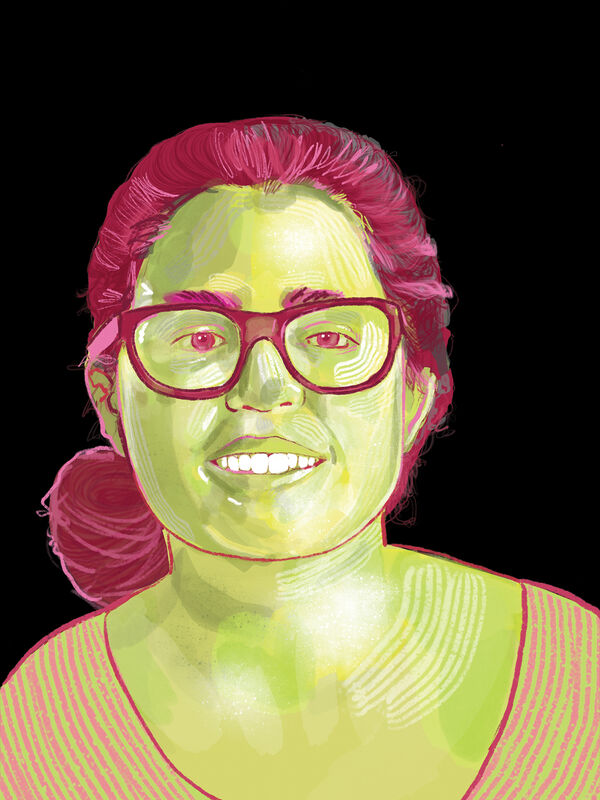
Caitlin MacLaren
SEIU 1991 at Jackson Memorial Hospital
I grew up in Miami, and I was already interested in organizing from the time I was in high school. I remember being inspired by the Coalition of Immokalee Workers, who I invited to speak at my school about their campaign to boycott Taco Bell. I also worked with the climate advocacy group Catalyst Miami, and was involved in the fight against budget cuts in Miami-Dade County on the heels of the 2009 recession.
I now work as a nurse at Jackson Memorial Hospital, which is part of the county public health system. I’m also a member of SEIU Local 1991—a union of healthcare workers in Miami—and have worked as an organizer for the union. For us as nurses, staffing is the major issue. We have language in our contract around staffing ratios for nurses and patients, but enforcing these ratios is hard. There is also the enduring issue of pay raises. Overall, we are fighting for a better healthcare system for workers and patients alike.
But despite their crucial role in providing public services, workers in Florida’s public sector unions are themselves under attack. In 2023, the state legislature passed a bill to stop union dues from being automatically deducted from workers’ paychecks. This meant we had to re-register all of our members and ask them for their credit card information, which not only takes a lot of time and money but also gives people who have been paying dues for years an excuse to change their minds. The bill also required public sector unions to have at least 60% of the workers they represent signed up as members in order to avoid undergoing a new union election. In a “right-to-work” state—where people have the option of enjoying the benefits of a union without becoming dues-paying members—it is very difficult to reach 60%. So this bill has led to the collapse of organized labor in Florida’s public sector as tens of thousands of people across the state have lost their unions. On the other hand, this is forcing unions to do some really deep organizing. You’ve got to go back to basics and engage every member about the importance of the union, which has the potential to strengthen unions as well. By using existing leaders in the workplace and talking to members one-on-one, we have survived this anti-union bill.
“To fight Florida’s attack on organized labor, you’ve got to go back to basics and engage every member about the importance of the union.”
It’s scary because we don’t know what attack is coming next, but it is also exciting that we live in a time of a resurgent labor movement in the United States. Unions are more popular than they have been in a long time, and are springing up in new sectors. The reporters at the Miami Herald, for example, have unionized. The paper’s coverage has previously made unionized county workers look greedy for wanting cost-of-living adjustments. I wonder what the coverage will look like now that the workers there are union members themselves. It gives me hope that we could get more sectors into the labor movement, and that more people will see their own struggle reflected in other people’s struggles.
In Florida, our opponents’ strategy is to attack on multiple fronts, which forces us to always be on the defensive and keeps us from working together. For example, the many horrible laws against immigrants, the LGBTQ community, workers, and tenants, have left us clinging to our own struggles. But in reality our struggles are connected. The “Don’t Say Gay” legislation is an attack on public schools and teachers’ unions as well as on the LGBTQ community. It is part of a broader strategy of villainizing teachers and their unions, and painting them as a cabal of woke pedophiles who are trying to indoctrinate children. So despite the temptation to drill down on our own issues, we need to build broader and deeper coalitions that draw connections between our fights. Then we can go on the offensive.
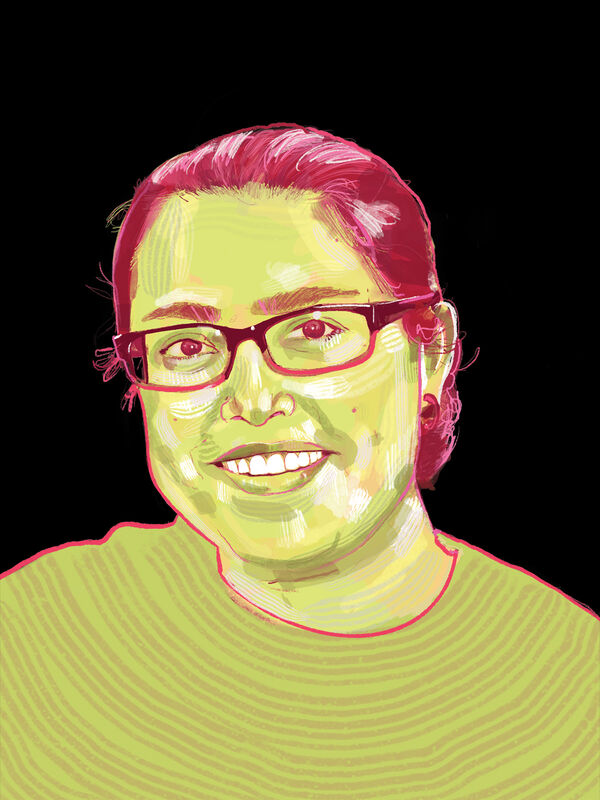
Ashley Mayfaire
TransSOCIAL
As a kid, I lived in Florida’s Cocoa Beach area [on the central Atlantic coast] before moving to the northeast. I moved back down to Fort Lauderdale after college, then to Miami, and I’ve been here 19 years. I started TransSOCIAL with my husband in 2016 as a response to the difficulty we had finding resources—both for him and for our family—while he was transitioning. It was meant to be a social and organizing group for trans people outside of clinical settings and support groups, which were really the only spaces available at the time.
We started the group a few months before Trump was elected, so since we’ve been around, there’s never really been a great time to be trans in Florida, or the country, for that matter. Still, there was a lot of curiosity about trans people when we first started. In recent years, the climate has become a lot more polarized. Now, people think they know a lot—they have definitely formed their opinions about the trans community. In May 2023, the state legislature passed a law criminalizing gender-affirming healthcare for trans youth [in June 2024, a federal judge struck down the ban; DeSantis’s office has said it will appeal the decision]. So from last fall up until earlier this year, a lot of trans people chose to relocate out of Florida. If they had the means, they left, and I would say there was a feeling of defeat. Our entire staff is trans, so everything that’s happening affects all of us just as it affects our clients. But since the care ban, we’ve also had a lot more folks reach out just to get connected. They felt like they didn’t have a good source of current information, they didn’t know where to turn with their questions. We have a lot more active involvement in our organizing work than we did a year ago.
At this point, the organization assists with name and gender changes on official documents and hormone replacement therapy co-pays for low-income folks. We have also hosted a food pantry, clothing swaps, and an organizing space called TACO Tuesday—which stands for Trans Activist Community Organizing—where we met over tacos and talked about current bills and public policy, ways that we could engage to support each other through mutual aid networks and combat some of these bad laws. Since 70% of our client base are between the ages of 18 and 25, and a lot of them don’t have great relationships with their biological families—many also didn’t complete high school—we’re also trying to provide mentorship where we can. People have been asking for help with life skills, like basic car maintenance, financial literacy, and how to access healthcare benefits, so we’re going to incorporate that into the next iteration of TACO Tuesday.
“We used to organize thinking we would change bad policies. Now we’re much more concerned about setting up sustainable networks for trans care outside of government systems.”
We used to organize thinking we would change bad policies. Now we’re much more concerned about setting up sustainable networks for trans care outside of government systems. We want to keep each other safe, no matter who is in power, no matter which laws come down. So we focus on questions like: How do we keep medical access available? How do we keep social support going? How do we meet people’s basic needs? We are taking on these questions ourselves because a lot of national funders have taken a step back from Florida, seeing it as a lost cause. We’ve also seen a lot of grants come out for organizations in the South, but their definition of “the South” does not include Florida.
We are trying to fill that gap, and we’ve been able to do a lot. By using emergency funds to cover travel and out-of-pocket medical costs, we can get accessible, legal care for anyone in the state of Florida, whether they’re a child or an adult. We’ve built great partnerships over the last couple of years, especially with abortion access activists. We’ve been able to piggyback off of some of their networks, which help people get out of state if they can’t find the care they need here.
Organizing isn’t fast. It can be real slow, and very personal—very interpersonal. Mobilizing a large group of people for a march or for a protest can make a big splash, but if the deep relational work isn’t being done along the way, it’s not going to be as long-lasting. We have to change people’s relationship to each other one by one; that’s what’s going to make the bigger systemic changes.
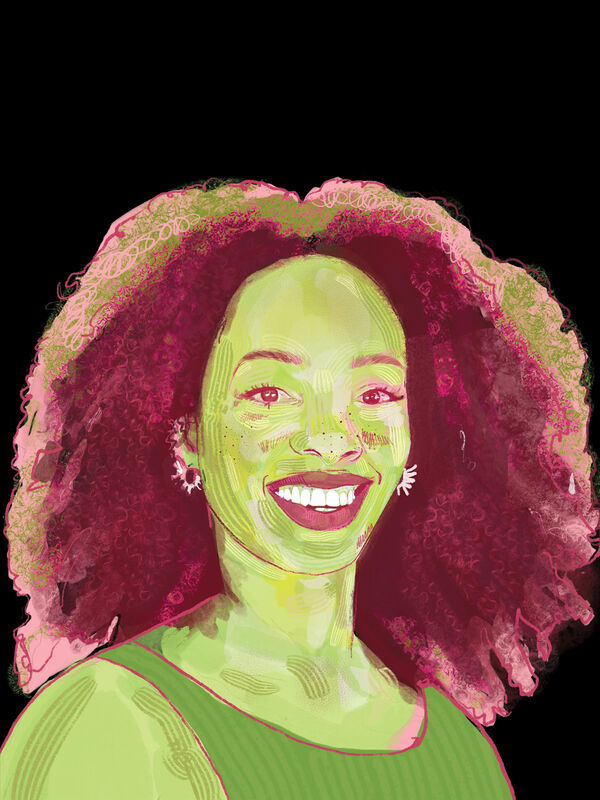
Zelalem Adefris
Catalyst Miami
I grew up in suburban Minnesota in one of very few Black families in my town, so I’ve always been interested in racial justice. I started focusing on climate after I learned how environmental harm disproportionately impacts African American communities. In 2016, I moved to Miami to take a job as the climate resilience program manager at Catalyst Miami, an organization focused on economic and climate justice, where I’m now the CEO.
There’s been a ton of progress in climate-related organizing since I started. Nine years ago, Miami-Dade County had little money allotted for climate action, but there are now multimillion-dollar investments in solutions to greenhouse gas emissions and extreme heat and sea-level rise. Advocacy groups have also successfully pushed to establish an Office of Resilience in the county, which works very closely with nonprofit organizations to address climate challenges. We’ve provided direct feedback on county climate initiatives. Initially, the Army Corps of Engineers wanted to build a giant concrete wall between Miami and the Biscayne Bay, which may have been able to stop a storm surge but would do nothing to prevent sea-level rise, not to mention that it would be very ugly. But after a lot of advocacy by Catalyst Miami and several partners, the county eventually agreed to consider different, community-led plans that would integrate nature-based solutions, such as earthen berms [raised barriers or ridges in the landscape], to protect from the storm surge. Our lobbying also got the county to improve its “Extreme Heat Action Plan” by focusing on things like retrofitting homes for greater efficiency, which can decrease emissions and protect against extreme heat.
One of our main challenges in Florida is that utility companies have a lot of power. Florida Power and Light (FPL) in Miami, for example, acts as a monopoly and has been consistently fighting against solar energy initiatives. Specifically, FPL-backed legislation would restrict access to net-metering, which requires utility companies to reimburse consumers for solar power that they put back into the grid. Worse still, FPL was accused of charging consumers millions in fees that were then used to lobby against net-metering at the state level. Because many people with solar paneling rely on income from net-metering to finance the installation, this policy shift would have disincentivized the switch to solar energy for everybody except the uber wealthy. The adverse impact on the solar panel industry in Florida could cost up to 40,000 jobs. So Catalyst worked with a number of partners and coalitions to get the governor to veto this harmful legislation a couple of years ago. We are also doing a lot of work to raise awareness about the Public Service Commission, the governor-appointed public body that oversees FPL, so that people can come to their hearings and make their voices heard in favor of affordable renewable energy.
Even though we’ve made progress, there are still challenges. There’s a saying that the most dangerous time of year in Florida isn’t hurricane season, it’s the 60-day legislative session. When I started working at Catalyst eight years ago, we used to work locally or regionally, but it has become increasingly critical for us to work statewide because of state-level preemption. For example, we partnered with Clean Energy for All and Florida Housing Justice Alliance to halt the raising of the ballot initiative threshold from 60% to around 66%, which would have made it even harder for citizens to directly amend the state constitution.
There’s more agreement about the issues than you might expect across party lines. For example, Floridians have affirmed a ballot initiative to restore voting rights for ex-convicts, and another to institute tax breaks for the installation of solar energy equipment, even if they have also voted for elected officials who do not support these policies. This tells me we have some shared values, regardless of how people define themselves politically. We have learned to work across the aisle. When it came to a series of state constitutional amendments regarding solar energy—including one backed by utilities and fossil fuel industries that would have restricted access—we even worked with the Tea Party, which views the suppression of solar energy as an infringement on individual liberty. Together, we won that battle.
“You can’t write off whole states. It could easily be your own community that’s next.”
People want to write off Florida. But it’s important to remember that Florida’s democratic backslide has happened only within the last decade or so. I think that teaches us that you can’t write off whole states, especially those with communities of color and immigrants. It could easily be your own community that’s next, so having real solidarity across the country is absolutely necessary.
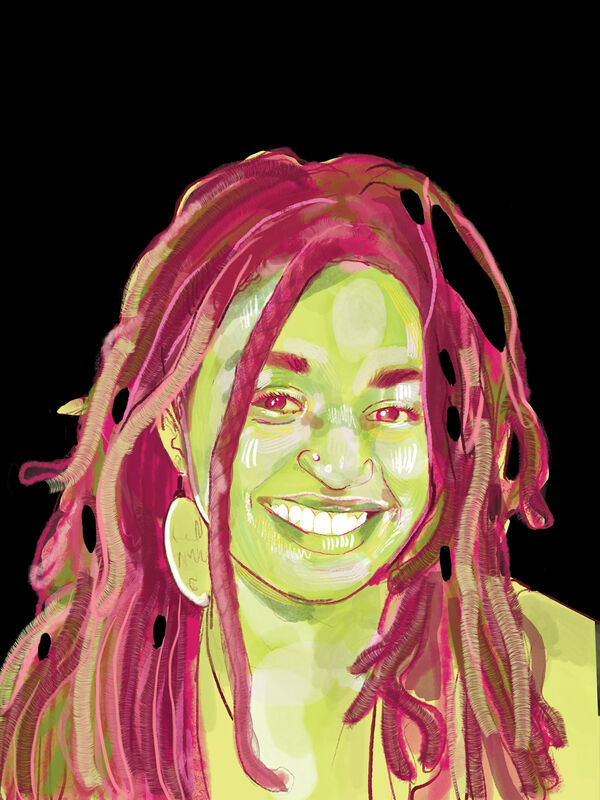
Brittany Frizzelle
Power U
I’m originally from Durham, North Carolina, and worked as a teacher there until 2018, when I moved to Florida for law school. I started volunteering with [the base-building organization] Power U and learning about reproductive justice. Eventually I took a full-time job as Power U’s reproductive justice organizer, with a focus on comprehensive sex-ed campaigns, efforts to provide period products, and advocacy for full-time nursing at schools.
Before DeSantis was elected, we used to have a sex-ed curriculum based on the three Rs (Rights, Respect, Responsibility) that addressed everything from sexuality and gender to contraception and abortion in age-appropriate and scientifically accurate ways. This has gradually been whittled away. After the “Don’t Say Gay” Bill and the “Stop WOKE” Act, Florida’s state education board removed from the curriculum images of the body that were deemed “inappropriate,” all references to gender and sexuality outside of heterosexual norms, and most references to pregnancy prevention. The syllabus still speaks about periods and condom usage, but it ultimately promotes abstinence and heteronormative ideas of the family. Then there is the direct attack on abortion rights—Florida’s six-week abortion ban came into effect on May 1st—which makes teaching youth about abortion even harder.
In this environment, we’ve only been able to sustain our work because we have built deep relationships with school administrators, teachers, and the youth. The schools understand that their students are still asking these questions, and we are cooperating with many of them to provide programming to address these issues. But the state-level restrictions mean that sometimes we can’t do this work on school time or premises, and we can’t put our names on flyers for fear of being criminalized.
The wave of new bills coming down every single month has felt like a never-ending battle. You’re always fighting the latest bad bill and the 15 others that came before it, and it’s difficult to muster the energy to keep fighting. We’ve always operated at a hyperlocal level, providing sex education and organizing people to lobby school boards in specific towns. But as a result of state-level attacks, we’ve had to go to Tallahassee and attend Board of Education meetings to understand what legislation is coming down the pike. This means that we have less time to do our actual work with students.
“People are actually organizing now: The anger is real, and new activist formations and organizations are springing up to meet the moment.”
On the other hand, more and more people are getting involved. There has been a major cultural shift since I started doing this work in 2020 because people understand that abortion rights are quite literally on the ballot. In the past, I was seeing a lot of mobilizing for one-off events, where folks would vent their anger and then never talk again. People are actually organizing now: They stake out a clear position, meet up again and again, try to convince others, and take action. The anger is real, and new activist formations and organizations are springing up to meet the moment.
In April, we attended an abortion rally in Orlando with youth organizers from Power U. There were counter-demonstrators holding up these really gruesome photos of aborted fetuses. There are a lot of conservatives who were raised on these politics, and it’s really hard to get through to them. But we’ve got to be able to have those conversations. In Florida, people across political divisions really do care about self-determination and safety, so if you can expand how reproductive justice is understood, you can bring in unexpected allies. For example, one woman from the conservative political organization Moms for Liberty heard us speak about the issue of full-time nurses. We organized a one-on-one meeting with her, explained our method of empowering youth to advocate for themselves, and she joined us in testifying before the school board about the need for full-time nurses in schools. To me, this shows that thinking of sexual education in a more comprehensive way—as a question of the safety of our communities—can get people to show up. And it all starts here in the school.
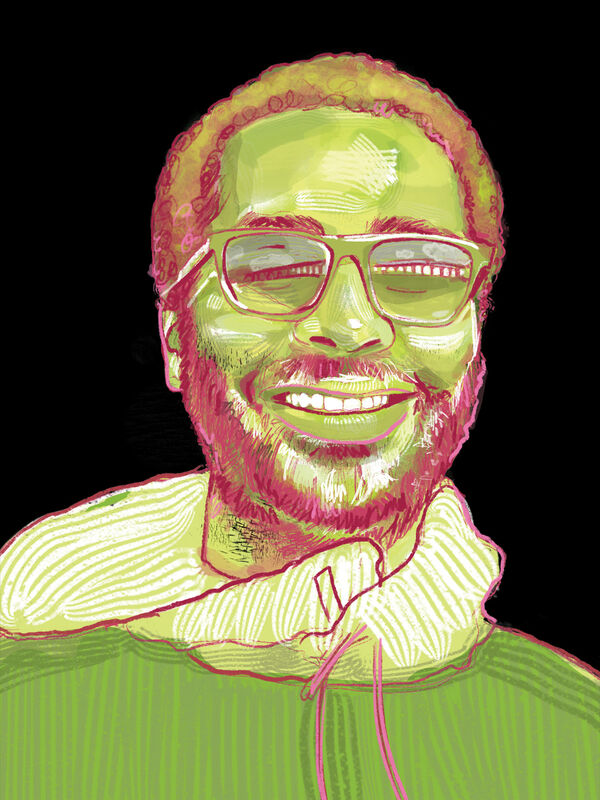
Richie Floyd
Democratic Socialist member of St. Petersburg City Council
I’m from a working-class household in the Panhandle. I grew up not really caring about politics but I did have this attitude like, the man’s trying to keep me down. Then in 2015, I saw this video on Bernie Sanders’s YouTube page in which he talks about ending the forever wars, getting money out of politics, Medicare for All, and free college tuition, and I was like: That’s what I want. So I moved to St. Petersburg in 2017, joined the Democratic Socialists of America, and campaigned for a $15 minimum wage and restoring voting rights for ex-convicts.
When I ran for city council, we had a rose on our campaign literature, but democratic socialism wasn’t central to our messaging because most people don’t know what it is. We campaigned on issues like affordable housing, renewable energy, and protecting the LGBTQ community. Honestly, we didn’t experience the red-baiting you would expect. Some guys put out yard signs saying “Richie Floyd: Marxist Socialist,” but it never gained much traction. And with these right-wing people who think anything to the left of Trump is socialist, openly admitting your politics really disarms them—like “Yeah, I’m a socialist, what are you gonna do about it?”
One of the biggest challenges we face here is preemption, especially around attempts to regulate businesses, because state politicians don’t want us messing with their rich friends in the private sector. This means that cities can’t regulate the landlord-tenant relationship, wages, gun laws, or plastic use. But there’s other things that a city can do that I’ve been focusing on lately. One is providing high-quality public goods and services, like access to abortion, social housing, a decent sewage system, and a city-owned grocery store. The other is enforcing existing laws—around things like tenant eviction, wage theft, and child labor—that go unfollowed in Florida. So I pursue these avenues, and there are successes there. For example, in 2023 I pushed through a pilot program for the right to counsel in housing court, under which you’d get legal representation if you faced eviction. That hasn’t been preempted because all we’re doing is making sure that state law is not being violated.
“I used to believe that DeSantis’s culture war was all a distraction from the class war, but now, the culture war seems to have taken on a life of its own.”
But while we’ve had some local wins, the state level is different. In the 2022–23 legislative sessions, we saw so many hateful bills because DeSantis was advancing his presidential bid, including the anti-protest bill and the “Don’t Say Gay” bill. I used to believe that DeSantis’s culture war was all a distraction from the class war, from how the people at the top are enriching themselves at the expense of working people, and I still think it’s generally true. But I also think that now, the culture war seems to have taken on a life of its own. They’ve whipped up such a fervor that people are genuinely hateful now.
In 2024, the legislative session went back to normal by Republican standards because DeSantis wasn’t running for president anymore. But we are still in an emboldened right-wing climate that has deflated the working class, especially minorities. People don’t have any faith in state government anymore, which is why nobody turned out to vote in 2022. That year, DeSantis started an election police force and arrested people he suspected of committing voter fraud—which is to say, marginalized people. This was broadcast on every local news station, so even though all the charges were bogus and eventually got dropped, it scared the shit out of poor Black people. It was Jim Crow all over again.
The Democrats have offered no serious alternative. There continues to be a gap between their representatives and the multiracial working-class base because the party infrastructure is anti-democratic; it doesn’t encourage participation from everyday people. The closest Democrats have ever gotten to winning a governor’s race in modern history was with Andrew Gillum in 2018, when they had an open debate about who should be governor and what left-wing ideas should prosper, and then they lost by a hair to DeSantis and immediately concluded, “we’re never doing that again.” This is because an honest discussion would lead the establishment to understand that the people they are trying to represent are way more left-leaning than they are.
Democrats in Florida are always scared of losing “the Cuban voter who hates socialism.” But this fear leads them to lose others who are actually part of their base. As an example, plenty of Puerto Rican and Mexican immigrants would be super excited to vote for left-wing candidates, but no one’s even asking for their vote because everybody’s freaking out about somebody who’s never gonna vote for them in the first place. My advice: Don’t believe this bullshit that someplace is not good for working-class values. Are there working-class people where you are? Yes? Then go out and tell them you’re going to fight to make their lives better. You’ll be surprised who will support you.
Zaina Alsous works in the labor movement in South Florida and is the author of the poetry collection A Theory of Birds.

